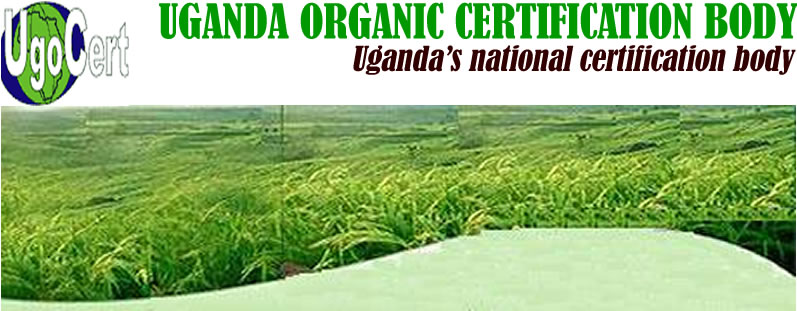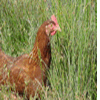What are the Benefits of Growing Organic Produce?
The Ontario government has been a pioneer in the organic farming industry. To achieve this goal, they have invested heavily in research and development of agricultural products. In order to achieve their goals, they have set up a research and development department called the Agricultural Research Institute (ARI). ARI is responsible for developing new products and technologies that will help the farmers improve their yields.
The ARI has made a lot of progress in the area of organic farming. The latest technological breakthroughs include:
Research organic farming issues in Ontario.
In the beginning, organic farming was seen as a way to avoid pesticides and herbicides. Over time, it became clear that this was not the case. Organic farming is now a major part of Ontario’s agricultural economy and there are many debates about whether or not it is better for farmers and consumers.
The Ontario government has recently announced a two-year $29 million program to help farmers switch from conventional agriculture to organic farming methods in order to reduce greenhouse gas emissions. This program aims to increase the amount of organic food grown in Ontario by 25% over five years. The program will require both small-scale farms (less than 10 hectares) and large-scale farms (more than 50 hectares). The government will provide up to $20 million per year for two years through its 2017 budget, with an additional $1 million available annually thereafter until 2020.
What are some of the best varieties of Organic Vegetable?
This research paper will cover the following topics:
Organic farming is a very popular farming method and it has been widely adopted in the world. However, organic farming can be very damaging to the environment. This means that we should not rely too much on it.
A brief overview of organic farming in Ontario, what makes it different from conventional farming, how it is managed and the challenges of this type of farming.
A study has been conducted by researchers at the University of Guelph and the University of Guelph, Canada. The research was done to investigate the influence of organic farming on farm profitability. This study found that organic farming is more profitable than conventional farming in Ontario. The study also found that there are a number of major differences between organic and conventional farming practices.
How We can Help Ontario Farmers Grow Organically
1. What is organic farming?
2. Why do we need organic farming?
3. What are the benefits of organic farming?
4. What are the challenges of organic farming?
5. How can we improve our current practices in Ontario?
6. What are the most popular topics in organic farming research right now?
7. Are there any new trends and innovations to watch out for in Ontario’s organic agriculture industry in 2018 and beyond?
Organic farming is a very important issue in Ontario. It is also one of the most profitable farming activities in the province. This study looks into the challenges and opportunities for organic farming in Ontario.
Researching organic farming issues in Ontario is a challenging task. The province has a large number of farms, which produce more than half of the food in Canada. However, the majority of these farms are not certified organic and produce only low-quality products. In order to raise awareness about this issue, we conducted an online survey with 800 participants from across Canada who were interested in this topic.
Introduction to the Aidan project and what can it do for you
This article is about research into organic farming in Ontario. It includes information on the history of the organic farming movement, as well as an overview of current practices in Ontario. The article also discusses some of the challenges and opportunities for farmers in organic agriculture.
Organic farming is one of the most important issues facing Ontario agriculture. Over the years, we have seen a shift from organic to conventional farming. This shift has been driven by a number of factors including increased demand for food in Canada, changing consumer preferences, and government policy changes.
We should not think of these AI writers as a replacement for organic farmers and their concerns regarding the current state of affairs in Ontario agriculture. They just provide assistance to the content writers by getting rid of writer’s block and generating content ideas at scale.
We are currently witnessing a revolution in the way we produce food. The current agricultural system is highly unsustainable and requires massive amounts of water, land, energy and nutrients to grow crops.
It is estimated that it would take at least 1 trillion gallons of water to produce just one pound of food. This means that if we want to produce enough food for the world’s population, we will need about 10 million gallons of water to produce one pound of food.
In order for this system to survive, there must be a change in our farming methods. There must be an innovation in how we farm and how we use natural resources such as water and land. This could also help the environment as well as bring more income into the Canadian economy by providing more jobs with higher wages for farmers.
- The Importance of Maintaining a Healthy and Balanced Ecosystem: How it Benefits Us and the EnvironmentIntroduction: Understanding the Significance of a Healthy and Balanced Ecosystem Imagine a world where nature thrives in perfect harmony, where every living organism plays a vital role in maintaining the delicate balance of our planet. This is the power of a healthy ecosystem. Ecosystems are not only beautiful and awe-inspiring, but they also serve as… Read more: The Importance of Maintaining a Healthy and Balanced Ecosystem: How it Benefits Us and the Environment
- The Importance of Embracing Environmentally Sustainable Practices for a Greener Futureenvironmentally sustainable practices, greener future, climate change, renewable energy, reduce carbon footprint, eco-friendly alternatives. In today’s world, the importance of embracing environmentally sustainable practices cannot be overstated. With the growing concern over climate change and its impact on our planet, it is crucial that we take proactive steps towards creating a greener future. One of… Read more: The Importance of Embracing Environmentally Sustainable Practices for a Greener Future
- Learn How to Check for Soil Health Issues and Improve Your Garden’s ProductivityIntroduction: The Importance of Soil Health and Its Impact on Plant Growth Ensuring soil health is crucial for optimal plant growth and garden productivity. The quality of soil directly impacts the nutrients available to plants, their ability to absorb water, and overall resilience against pests and diseases. By prioritizing soil health, gardeners can create thriving… Read more: Learn How to Check for Soil Health Issues and Improve Your Garden’s Productivity
- The Latest Developments Elsewhere: Exploring the Exciting Advancements in Various FieldsThe world we live in is constantly evolving and progressing at an unprecedented pace. In every corner of the globe, remarkable advancements are being made across a multitude of fields. From science and technology to medicine and beyond, the latest developments are shaping the way we live, work, and interact with the world around us.… Read more: The Latest Developments Elsewhere: Exploring the Exciting Advancements in Various Fields
- The Importance of Soil Health and Nutrient Management: Enhancing Crop Productivity and Sustainable AgricultureIntroduction: Understanding the Vital Role of Soil Health in Agriculture In today’s rapidly changing world, the importance of soil health and sustainable agriculture practices cannot be overstated. As farmers and agricultural professionals strive to maximize crop productivity while minimizing environmental impact, the management of soil nutrients and fertility plays a crucial role. One key aspect… Read more: The Importance of Soil Health and Nutrient Management: Enhancing Crop Productivity and Sustainable Agriculture
- The Importance of Organic Standards: Ensuring Trustworthy and Sustainable AgricultureOrganic standards, trustworthy agriculture, sustainable agriculture, consumer trust, environmental impact, health benefits. In today’s world where consumers are becoming increasingly conscious about the food they consume and its impact on their health and the environment, organic standards play a crucial role in ensuring trustworthy and sustainable agriculture practices. These standards not only provide a framework… Read more: The Importance of Organic Standards: Ensuring Trustworthy and Sustainable Agriculture
- Unlocking the Secrets: How to Increase the Yield of Organic Agricultural ProductsIntroduction: The Growing Demand for Organic Agricultural Products The demand for organic agricultural products has been steadily increasing in recent years. As consumers become more health-conscious and environmentally aware, they are seeking out food that is grown without the use of synthetic pesticides, fertilizers, and genetically modified organisms (GMOs). This growing demand for organic products… Read more: Unlocking the Secrets: How to Increase the Yield of Organic Agricultural Products
- Unlocking Opportunities: The Power of International Conferences in Driving Global Collaboration and InnovationIn today’s interconnected world, international conferences have emerged as powerful platforms for driving global collaboration and innovation. These gatherings bring together experts, thought leaders, and professionals from various industries and countries, creating a unique opportunity for knowledge sharing, networking, and forging partnerships. International conferences have become powerful platforms for driving global collaboration and innovation. These… Read more: Unlocking Opportunities: The Power of International Conferences in Driving Global Collaboration and Innovation
- The Top 7 Best Ways To Raise Organic Livestock In A Healthy MannerOrganic Livestock Must Be Raised With Proper Care Organic livestock must be raised in a proper manner.This is an introduction to the topic of organic livestock farming. It is divided into three sections:Organic livestock must be raised in a proper manner. This is because organic livestock will promote the health of the soil and other… Read more: The Top 7 Best Ways To Raise Organic Livestock In A Healthy Manner






